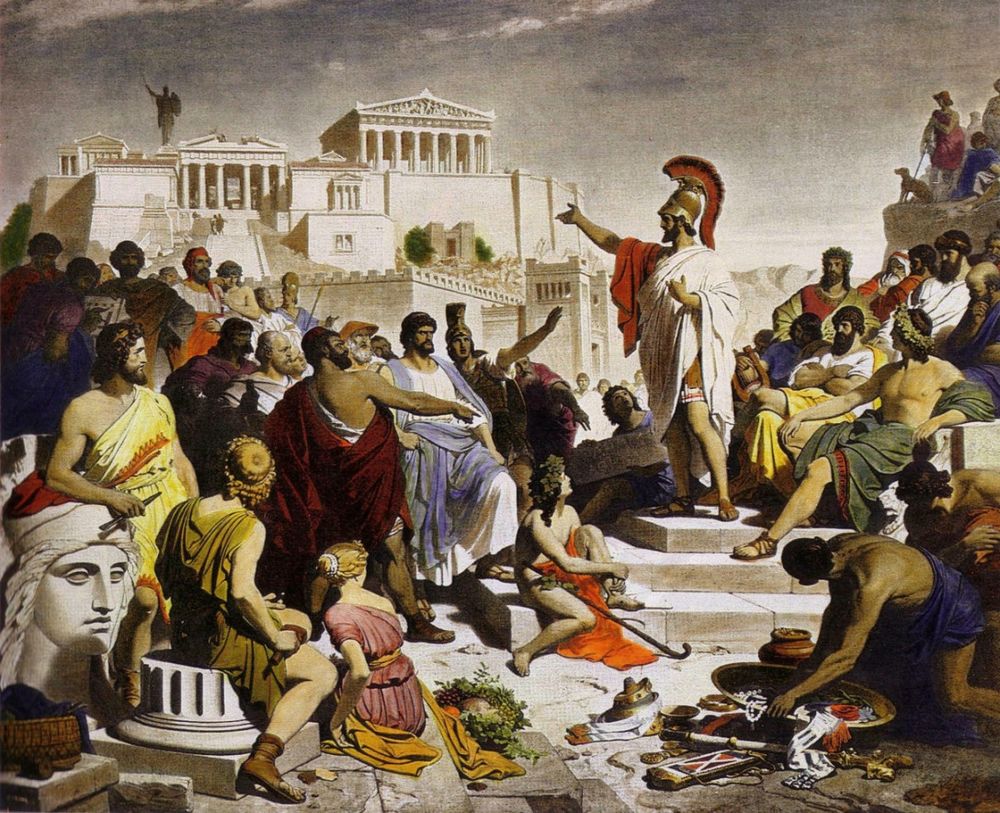From the hand of Thucydides, the historian of the Peloponnesian War, we have an account of Pericles’ famous speech, delivered in the winter of 431 B.C., exhorting the Athenians to greater efforts by describing the ideal of an imperial democracy:
Our constitution does not copy the laws of neighboring states; but are rather a pattern to others than imitators ourselves. Its administration favors the many instead of the few; this is why it is called a democracy. If we look to the laws, they afford equal justice to all in their private differences, if to social standing, advancement in public life falls to reputation for capacity, class considerations not being allowed to interfere with merit; nor again does poverty bar the way, if a man is able to serve the state, he is not hindered by the obscurity of his condition. The freedom which we enjoy in our government extends also to our ordinary life. There, far from exercising a jealous surveillance over each other, we do not feel called upon to be angry with our neighbor for doing what he likes, or even to indulge in those injurious looks which cannot fail to be offensive. although they inflict no positive penalty. But all this ease in our private relations does not make us lawless as citizens….
Our public men have, besides politics, their private occupied with the pursuits of industry, are still fair judges of public matters; for, unlike any other nation, regarding him who takes no part in these duties not as unambitious but as useless, we Athenians are able to judge at all events if we cannot originate, and instead of looking on discussion as a stumbling-block in the way of action, we think it an indispensable preliminary to any wise action at
In short I say that as a city we are the school of Hellas [Greece], while I doubt if the world can produce a man, who where he has only himself to depend upon, is equal to so many emergencies, and graced by so happy a versatility as the Athenian.

